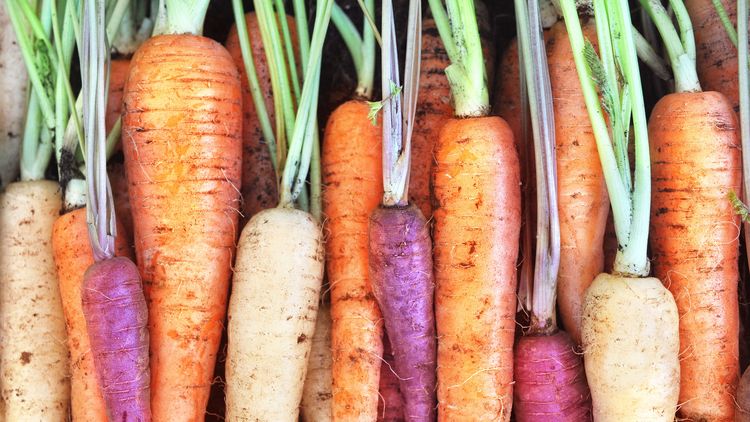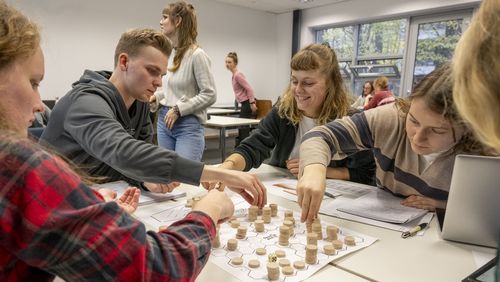Commons-based plant breeding promotes diversity and reduces farmers' dependence on international markets, a new study by sustainability researchers Stefanie Sievers-Glotzbach and Lea Kliem shows.
The cauliflower variety 'Odysseus' and the carrot variety 'Miranda' have something in common: they are both grown on organic farms and neither is under plant variety protection. The seeds of the 'Miranda' carrot with a "flavour reminiscent of roses" (according to the breeders), and the 'Odysseus' cabbage with its "firm, somewhat lighter flower" can be freely propagated, sold and developed. They belong to the "commons-based" varieties that are produced by special initiatives or small enterprises. Unlike industrial seed companies, whose varieties are for the most part under variety or even patent protection, these producers share their knowledge with each other, jointly establish rules for the use of the seeds and waive protection rights for the varieties they breed.
A study carried out by Prof. Dr Stefanie Sievers-Glotzbach of the University of Oldenburg and Lea Kliem of the Institute for Ecological Economy Research (IÖW) in Berlin has now shown that this common rights-based practice helps to make agriculture more resilient. In an article recently published in the International Journal of Agricultural Sustainability, the researchers concluded that among other benefits commons-based plant breeding promotes diversity of varieties and reduces farmers' dependence on international markets.
Dependence on large companies
Until the beginning of the 20th century, farmers took it for granted that they could freely use different plant varieties, exchange seeds and develop new varieties in their fields. The modern seed industry, however, is based on a system in which varieties belong to companies that charge fees for permission to cultivate varieties and sell seeds on an exclusive basis. The prerequisites for this are patents and variety protection, but also technical practices such as breeding very high-yielding hybrid varieties which do not produce usable seeds. This system makes farmers increasingly dependent on a handful of large companies.
For economic reasons, large companies rely on just a few high-yielding varieties for which they also produce specially adapted fertilizers and crop protection products. However, these high-yield varieties react poorly to suboptimal growing conditions and are not adapted to local soils or climatic conditions. Small enterprises and initiatives that treat varieties as common property take a different approach: they are guided by the principle that crop varieties belong to humanity's common cultural heritage and should not be private property.
Influence on agricultural resilience
The objective of Kliem and Sievers-Glotzbach's study was to compare the effect of these two different approaches to plant varieties on agricultural resilience – in other words, the ability of agroecosystems to adapt to changes such as climate change or diseases and to ensure food supplies despite such disruptions. The researchers selected 14 indicators to determine the influence of seed production on agricultural resilience, including redundancy and variability of supply chains, availability of regionally adapted varieties, the creation of seed libraries and the economic efficiency of seed production.
On the basis of these indicators the economists analysed the sustainability reports and brochures of conventional seed companies in German-speaking countries and compared them with the publications of selected farms and initiatives that produce seed on a common rights basis. The result: "The commons-based approach to varieties has clear advantages over the practices of large seed companies," says Sievers-Glotzbach, who heads the RightSeeds junior research group, which is funded by the German Federal Ministry of Education and Research. "Instead of concentrating on just a few high-yielding varieties that only thrive under optimal growing conditions, commons-based breeders and seed producers focus on diverse varieties that can adapt to regional particularities and changing climatic conditions," she explains.
Experimenting with old varieties
The 'Miranda' and 'Odysseus' varieties are good examples of this, the researchers explain. The hardy 'Miranda' carrot copes well with conditions in northern Germany and is adapted to organic cultivation. It was bred by a breeder near Bremen using the old 'Michel' variety. Sixteen years passed between the first trials and its approval by Germany's Federal Plant Variety Office. The 'Odysseus' cauliflower, on the other hand, was developed in Upper Bavaria from the conventional variety 'Erfurter Zwerg' in order to achieve an easier, more reliable harvest.
Kliem highlights another result of the study: "We observed that the commons-based initiatives focus more on cooperation, and that the decision-making structures tend to be decentralized and participatory." This is also conducive to greater diversity of varieties and to the development of regionally adapted seeds, she explains. However, the analysis also showed that commons-based initiatives have not yet been able to develop a viable business model that makes the expensive and time-consuming breeding work worthwhile from a financial perspective. Kliem and Sievers-Glotzbach therefore recommend long-term funding programmes and a more favourable political framework for commons-based plant breeding.




